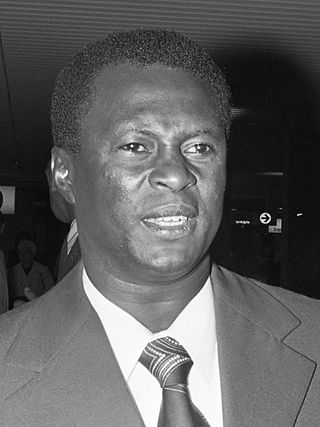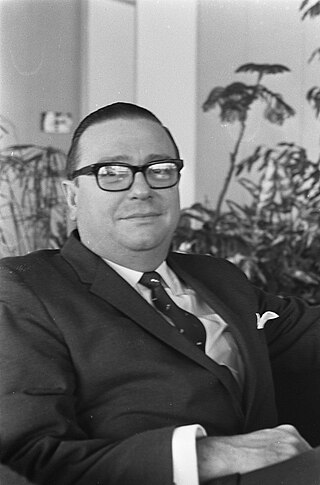Related Research Articles

The Netherlands Antilles, also known as the Dutch Antilles, was a constituent Caribbean country of the Kingdom of the Netherlands consisting of the islands of Saba, Sint Eustatius, and Sint Maarten in the Lesser Antilles, and Aruba, Curaçao, and Bonaire in the Leeward Antilles. The country came into being in 1954 as the autonomous successor of the Dutch colony of Curaçao and Dependencies, and it was dissolved in 2010, when like Aruba in 1986, Sint Maarten and Curaçao gained status of constituent countries within the Kingdom of the Netherlands, and Saba, Sint Eustatius, and Bonaire gained status of special municipality of Netherlands as the Caribbean Netherlands. The neighboring Dutch colony of Surinam in continental South America, did not become part of the Netherlands Antilles but became a separate autonomous country in 1954. All the territories that belonged to the Netherlands Antilles remain part of the kingdom today, although the legal status of each differs. As a group they are still commonly called the Dutch Caribbean, regardless of their legal status. People from this former territory continue to be called Antilleans in the Netherlands.

The Council of Ministers of the Kingdom is the executive council of the Kingdom of the Netherlands, which is a state consisting of four constituent countries: Aruba, Curaçao, the Netherlands, and Sint Maarten.

The Minister Plenipotentiary of Aruba represents the constituent country of Aruba in the Council of Ministers of the Kingdom of the Netherlands. The current Minister Plenipotentiary of Aruba is Ady Thijsen. The Minister Plenipotentiary and his cabinet are seated in the Arubahuis in The Hague.

The minister plenipotentiary of the Netherlands Antilles represented the constituent country of the Netherlands Antilles in the Council of Ministers of the Kingdom of the Netherlands. The minister plenipotentiary at the 2010 dissolution of the Netherlands Antilles was Marcel van der Plank. The minister plenipotentiary and his cabinet were seated in the "Antillenhuis" in The Hague.

The Kingdom of the Netherlands, commonly known simply as the Netherlands, is a sovereign state consisting of a collection of constituent territories united under the monarch of the Netherlands, who functions as head of state. The realm is not a federation; it is a unitary monarchy with its largest subdivision, the eponymous Netherlands, predominantly located in Northwestern Europe and with several smaller island territories located in the Caribbean.

The Minister Plenipotentiary of Curaçao represents the constituent country of Curaçao in the Council of Ministers of the Kingdom of the Netherlands. The current Minister Plenipotentiary of Curaçao is Carlson Manuel. The Minister Plenipotentiary and his cabinet are seated in the "Curaçaohuis" in The Hague.

The Minister Plenipotentiary of Sint Maarten represents the constituent country of Sint Maarten in the Council of Ministers of the Kingdom of the Netherlands. The current Minister Plenipotentiary is Patrice Gumbs with Gracita Arrindell as the acting deputy.

A minister plenipotentiary represents the government of one of the Caribbean constituent countries as part of the Kingdom of the Netherlands. The minister is part of the government of that country, but resides in the Netherlands, where they are part of the Council of Ministers of the Kingdom of the Netherlands.
A Kingdom Act is an act of the Kingdom of the Netherlands, which scope goes beyond the constituent country the Netherlands, and which is (also) effective in the other constituent countries Aruba, Curaçao and/or Sint Maarten. Kingdom Acts are used for specific areas of law set out in the Charter for the Kingdom of the Netherlands, or for those areas where countries in the Kingdom of the Netherlands cooperate voluntarily.

Suriname was a constituent country of the Kingdom of the Netherlands between 1954 and 1975. The country had full autonomy, except in areas of defence and foreign policy, and participated on a basis of equality with the Netherlands Antilles and the Netherlands itself in the Kingdom of the Netherlands. The country became fully independent as the Republic of Suriname on 25 November 1975.
Marvelyne Fatima Wiels was the Minister Plenipotentiary of Curaçao between 2013 and 2016. In that capacity she was stationed in The Hague and was a member of the Council of Ministers of the Kingdom.
Antonito Gordiano "Mito" Croes was an Aruban politician of the Aruban People's Party. He served as Minister Plenipotentiary of Aruba from 1994 to 2001. He previously served as member of the Estates and government minister of the Netherlands Antilles and Aruba.

Juan Alfonso Boekhoudt is an Aruban politician serving as the 4th governor of Aruba since 2017. He previously served as minister plenipotentiary from 14 November 2013 to 17 November 2016.

Edmund Alexander "Eddy" Hoost was a Surinamese politician and lawyer. He was Minister of Justice and Police between 1973 and 1977. After the independence of Suriname, he became the first Minister of Defence and served until 1977. He was one of the victims of the December murders.

The Foreign relations of Curaçao are handled by the Kingdom of the Netherlands. Curaçao is a constituent country within the Kingdom, and subject to the Charter for the Kingdom of the Netherlands. Curaçao is responsible for their own government, education and laws, however foreign relations are handled by the Kingdom.

Willem Frederik "Wim" van Eer was a Surinamese diplomat and educator. He served as Minister Plenipotentiary of Suriname from 1 April 1974 until the Independence of Suriname on 25 November 1975. Subsequently, he was appointed first Ambassador of Suriname to the Netherlands and served until 20 May 1980.

Raymond Henri Pos was a Surinamese diplomat and lawyer. He was the first Minister Plenipotentiary of Suriname from 29 December 1954 until 1 August 1963. Subsequently, he was appointed Dutch Ambassador of Cuba. Pos played a major role in the creation of the 1954 Charter for the Kingdom of the Netherlands which established the political relationship between the Netherlands and its former colonies.

Efraïn Jonckheer was a businessman and politician of the Netherlands Antilles. Jonckheer served as Prime Minister of the Netherlands Antilles from 8 November 1954 until 14 February 1968. He served as Minister Plenipotentiary of the Netherlands Antilles from 1968 until 1971, Ambassador of the Netherlands to Venezuela from 1971 until 1976, and to Costa Rica from 1976 until 1982. As of 2022, Jonckheer was the longest serving Prime Minister in the history of the Kingdom of the Netherlands.

Johan Friedrich Egbert "Jo" Einaar was a Surinamese teacher and diplomat. He was an anthropology professor at Howard University in Washington DC, Dutch Consul General in New York City, and served as Minister Plenipotentiary of Suriname from 18 November 1965 until 1 July 1968.

Jean-fils Désiré Victor (Desi) Polanen was a Surinamese politician and diplomat.
References
- ↑ "Gevolmachtigde minister". Parlement.com (in Dutch). Retrieved 18 December 2021.
- 1 2 "Kennen beleidsmakers onze diplomatieke geschiedenis?". Star Nieuws (in Dutch). Retrieved 18 December 2021.
- ↑ "Aruba and the Netherlands Antilles: Political relations within the Kingdom of the Netherlands". Ministerie van Binnenlandse Zaken en Koninkrijksrelaties. Archived from the original on 2008-02-17. Retrieved 18 December 2021.
- ↑ "Statuut Koninkrijk". Rijksoverheid.nl (in Dutch). 5 July 2010. Retrieved 18 December 2021.
- ↑ "Dr. R.H. Pos". Parlement.com (in Dutch). Retrieved 18 December 2021.
- ↑ "Mr.Drs. S.D. (Freek) Emanuels". Parlement.com (in Dutch). Retrieved 18 December 2021.
- ↑ "Dr. Einaar gevolmachtigd minister". Algemeen Handelsblad (in Dutch). 22 November 1965.
- ↑ "Dr. J.F.E. (Johan) Einaar". Parlement.com (in Dutch). Retrieved 18 December 2021.
- ↑ "Mr. W. (Walter) Lim a Po". Parlement.com (in Dutch). Retrieved 18 December 2021.
- ↑ "Dr. J.D.V. (Desi) Polanen". Parlement.com (in Dutch). Retrieved 18 December 2021.
- ↑ "W.F. (Wim) van Eer". Parlement.com (in Dutch). Retrieved 18 December 2021.